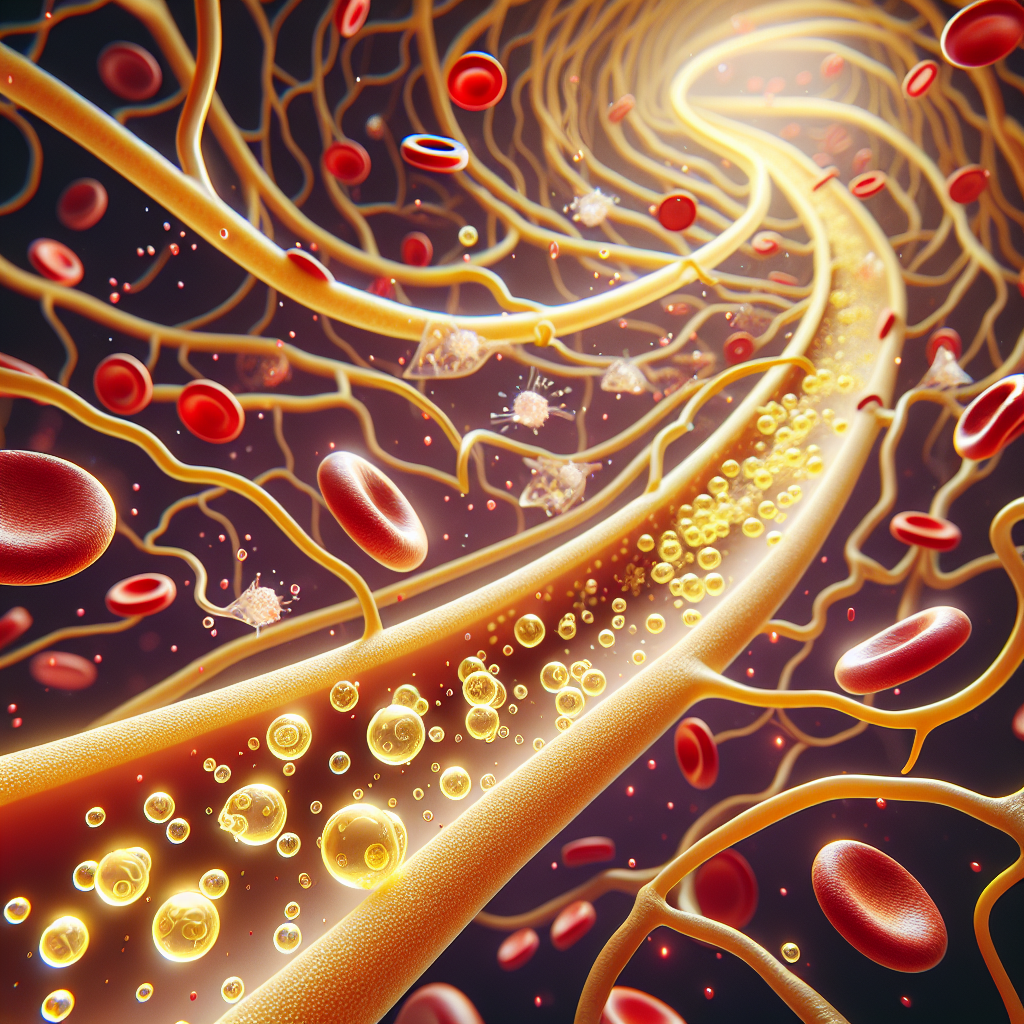Cholesterol is one of those terms that can immediately prompt concerns about health, particularly concerning the heart. However, it’s also one of the most misunderstood substances when it comes to our body’s physiology. In this comprehensive exploration of cholesterol and its impact on cardiovascular health, we will unravel the complexities and understand why maintaining the right balance of cholesterol is vital for our wellbeing.
Understanding Cholesterol: The Good and the Bad
Cholesterol is a waxy, fat-like substance that’s found in all the cells of our body. It’s essential for producing hormones, vitamin D, and substances that help you digest foods. However, it is the imbalance of cholesterol that leads to health problems, specifically cardiovascular diseases.
There are two types of cholesterol: low-density lipoprotein (LDL), often termed as ‘bad’ cholesterol, and high-density lipoprotein (HDL), or ‘good’ cholesterol. LDL can build up in the walls of your arteries and create plaque, a hard deposit that narrows the arteries and makes them less flexible, a condition known as atherosclerosis. On the other hand, HDL carries cholesterol from other parts of your body back to your liver, which removes the cholesterol from your body.
To learn more about the broader implications of cardiovascular health, readers can explore Cardiovascular Health, which provides an in-depth look at various factors affecting the heart.
The Impact of High Cholesterol
High cholesterol can be inherited, but it’s often the result of unhealthy lifestyle choices, making it preventable and treatable. A diet high in animal fats and trans fats and low in fiber can increase your cholesterol levels. Additional factors include lack of regular exercise, smoking, overweight, and diabetes.
When plaque builds up, it results in a narrowed coronary artery that causes the heart to receive less oxygen-rich blood, potentially leading to chest pain. If the plaque ruptures, it can lead to a blood clot that blocks the flow of blood, a heart attack, or even sudden cardiac death.
For those seeking to understand how diet influences heart health, the article How to Maintain a Heart-Healthy Diet is a valuable resource.
Screening and Diagnosis
Regular screening and early diagnosis of high cholesterol are crucial as high cholesterol itself does not cause any symptoms. Adults should get their cholesterol levels checked every 4 to 6 years. The test used to measure cholesterol levels is called a lipoprotein panel, which provides information about total cholesterol, LDL cholesterol, HDL cholesterol, and triglycerides (another type of fat in the blood).
In-depth information about preventive measures can be found in the article, The Importance of Regular Heart Health Check-Ups, highlighting the significance of consistent monitoring of heart health.
Strategies for Managing Cholesterol
Lifestyle Modifications
The first line of defense in managing high cholesterol is a lifestyle change:
- Diet: Incorporate heart-healthy foods into your diet like whole grains, fruits, vegetables, and fish high in omega-3 fatty acids.
- Exercise: Regular physical activity can help raise HDL cholesterol and lower LDL cholesterol.
- Weight management: Losing weight can help lower LDL and is especially important for those dealing with metabolic conditions like diabetes.
- Smoking cessation: Quitting smoking improves HDL cholesterol levels.
Medication
When lifestyle changes are not enough, doctors might prescribe medications. The choice of medication or combination of medications depends on various factors, including your individual risk factors, your age, your health, and possible drug side effects.
Natural Supplements
Some people opt for natural supplements to assist in managing their cholesterol levels. However, it is essential to approach this option with caution and under professional guidance, as not all supplements are beneficial and some might interact with other medications.
For a detailed look into natural remedies and their efficacy, the article Natural Supplements for Heart Health: Promises and Pitfalls provides a nuanced view of the use of supplements for heart health.
External Resources for Further Understanding
Diving deeper into cholesterol’s role and its management, here are some niche resources that provide valuable insights:
- Heart UK offers in-depth information on cholesterol, its types, and ways to manage it effectively.
- The Mayo Clinic provides a comprehensive guide on diagnosis and treatment options for high cholesterol.
- The American Heart Association is a cornerstone for understanding cholesterol and its impact on heart health.
Conclusion
Cholesterol is a critical component in our body, but its imbalance can lead to serious cardiovascular issues. Understanding the different types of cholesterol and the factors that affect its levels can help us take proactive steps towards heart health. Regular check-ups, a heart-healthy diet, exercise, and, if necessary, medication are vital components of managing cholesterol levels. By staying informed and making informed decisions about our health, we can mitigate the risks associated with high cholesterol and lead healthier, more fulfilling lives.



